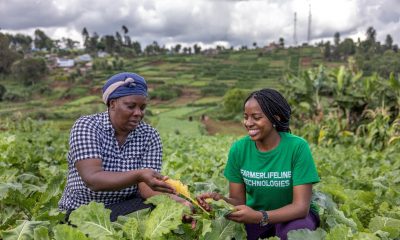The City of Cape Town (CoCT) has announced the launch of its first electricity wheeling pilot research project. The city is calling on interested parties to apply to become part of the pilot project, and has set the date deadline of 30 June 2022, 17:00 PM as cut-off for submission of applications.
Electricity wheeling involves transporting electricity from a generator to a remotely located end-user through the use of an existing distribution or transmission system. This may also be across multiple different distribution networks, such as through Eskom to a municipality.
“We will be offering an electricity wheeling facility to enable wheeling of electricity to 11 kV (medium voltage) customers who want to buy energy from third party suppliers that source the electricity from generators connected to Eskom or City electricity grids,” CoCT stated.
According to the City of Cape Town, the pilot research project will include a limited number of third party participants to investigate, test and finalise the wheeling facility. The pilot will take place over a minimum of one year, and will end with the full implementation of our wheeling facility.
“We have established a set of wheeling rules, tariffs and a draft agreement. We are in the process of finalising the technical requirements for the connection of generators > 1 MW to our grid, including a draft Grid Connection and Use of System Agreement for such connections, as well as changing our billing processes and systems,” says CoCT.
Utilising electricity wheeling to improve Cape Town’s energy supply
Wheeling does not necessarily mean that the exact electrons entering the transmission network from the generator will be transported to the end-user. Rather, wheeling frameworks and rules guide the balancing of energy from the generator with the end-user consumption through a financial transaction. This also includes overcoming system losses.
Recently enacted regulations through the amendment of the Electricity Regulation Act in South Africa now allow for private produced energy to be transmitted to other end-users, but subject to regulatory approvals and rules.
The City of Cape Town is hoping to utilise wheeling, among other mechanisms to improve electricity supply in the city. Eskom, which supplies almost all of the city’s energy needs, is currently unable to supply the electricity to the city without interruptions, with the city having to experience blackouts which according to the Western Cape province costs the provincial economy R150 million per day.
Cape Town is looking to get rid of load shedding, and has started the process to procure power from renewable energy independent power producers to help cover the energy supply shortfall from Eskom. Cape Town’s Executive Mayor, Geordin Hill-Lewis, at the 2022 Solar Power Africa conference in February this year announced the launch of the city’s first renewable energy procurement programme which is seeking to procure around 300MW from IPPs.
For more information and application forms on the wheeling pilot research project, please click here.

















